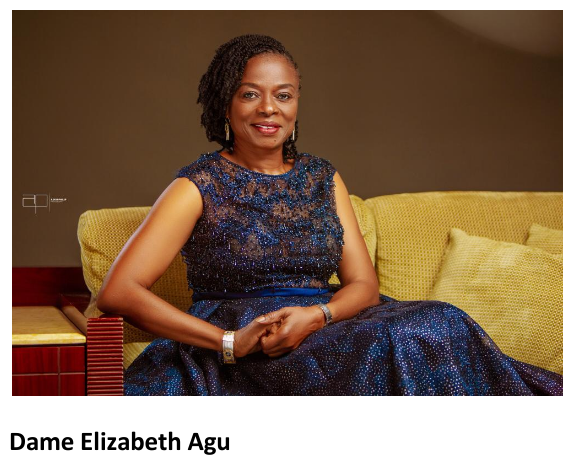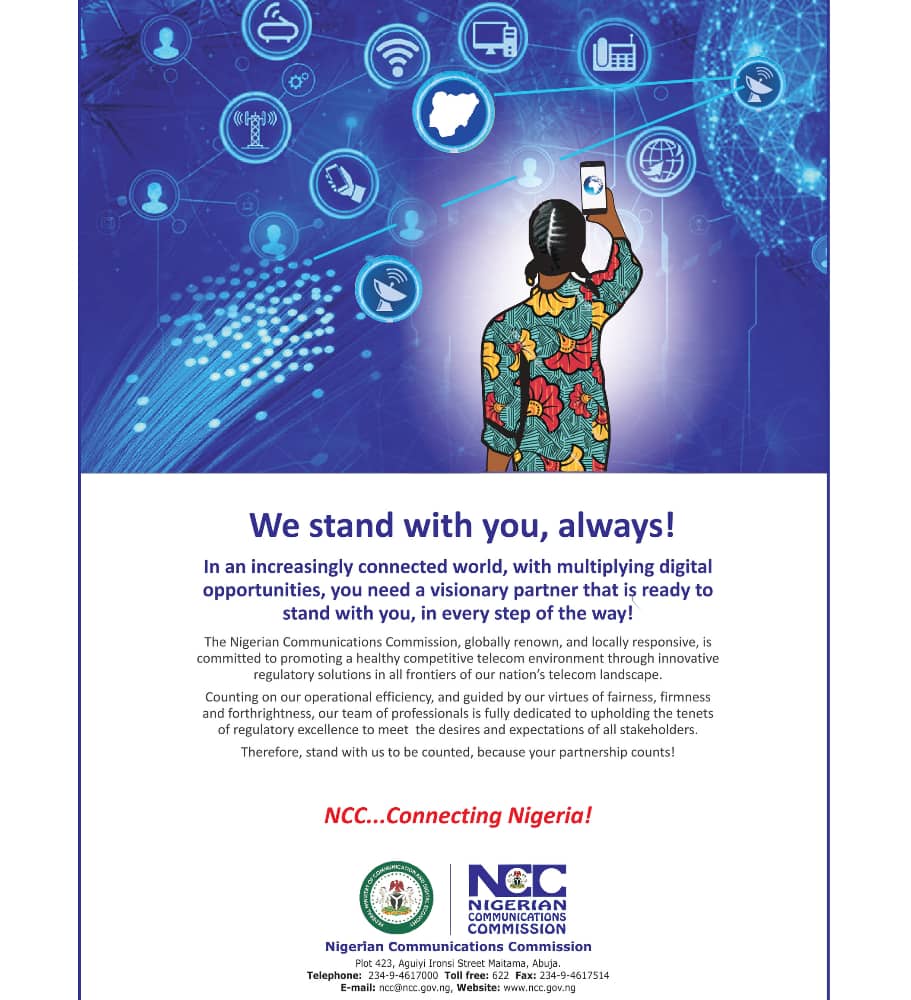
Dame Elizabeth Oyibo Agu, mni a former Director with the Central Bank of Nigeria, [CBN], tells Humsimedia that with shared experiences, Nigerians can be more united, seeing each other as one. Excerpts:
Where were you born?
I was born in a hilly place in Enugu State in a little town called Ngwor. My childhood memories were really sweet.
So what did your parents tell you about life in Nigeria in the pre-independence days?
Oh yes, yes. Life in Nigeria was very calm in those days. The standard of living was very high.
Even in the village, people lived well. Life was not as brutish as it is now. People were good neighbours to each other.
There’s always never enough but people had what they needed. I still remember running tap water in Ngwor in Enugu where I grew up. My parents told me they had water.
I grew up seeing that we’ll go to the get tap water and it will be rushing and we used to have this joke that when you get there, the tap would stop, which was like a bad omen. But that was just a joke.
By the time you get there in the morning the following day, the tap would be running, but it only happened when the water works were washing.
Those things were even there before I was born. People were kind to one another. We lived in the Nigerian Coal Corporation quarters and we had people from other parts of the country.
We all grew up together. We didn’t see any difference among us because then, people saw your soul first before they saw your labels.
People were more trusting and hospitable and that was what my parents were telling me. Then, you could sleep with your doors open. People also knew the bad ones.
They would tell you, see that person. He was known and bad people were avoided. They were like pariahs in the community. Some of them were even ostracised.
The stories I heard of happenings I was born, were those of a prosperous Nigeria, where there was a lot of integrity. There were bad people then but there were more of good people.
In the office, people were held more accountable. Life was just so joyous and cheaper. My dad, when he got paid, he would bring home so much food and stuff.
He was a Clerk in the Coal Corporation and he told me stories of a life that was serene, a life that was safe, before I was born.
Growing up, what schools did children of primary school age get enrolled in?
School was fun and education had a purpose. You knew that going to school was like a direct Visa out of poverty. The quality of education was high.
My dad did Primary six and he could write beautifully well. We had teachers, like I remember my headmistress literally loving me.
In school then, if you performed well, you were the teacher’s pet. It was not as if your parents were richer like we have these days. I
was your performance in school and your relationship with other students that really made you stand out. If you were respectful, if you were kind to others, you stood out.
It wasn’t like your expensive shoes or clothes that made you stand out.
Teachers were held accountable and they came to school on time and kept to schedules and of course, their products also were much better in those days.
You didn’t have to come from a rich home to get quality education.
What school did you attend at the time?
I went to Holy Ghost Cathedral. It was a Catholic school. We were even taught by nuns then.
I then went to Girls Secondary School Ngwor before I travelled to the United States where I did all my tertiary education.
What sort of schools were other kids attending?
They were attending public schools like state schools, schools run even by the local government then.
They were local council schools that were equally good and they had good teachers and you’d trek quite a bit and then you get to a school that could favourably compete with the Catholic schools then.
Some of my cousins went there, and in the evenings, they could take us up on any topic.
Can you remember where some of those children who attended public schools are in life now?
During our era, traveling abroad was the thing, like in the early 80s. In my own area in Enugu, a lot of us went abroad.
The people I grew up with, a lot of them ended up in the United States. There are some that didn’t make it and in Enugu, are still civil servants.
A lot of them entered the ministries, some federal, some states. That’s what I can remember.
There is so much class difference today. At what point did we miss it?
Over time, Nigerians became a consuming set of individuals, people that didn’t care what they gave, the value they added.
What everybody cared for was,what’s in there for me? What am I getting? Maybe we need to do research.
Here, we don’t have a lot of data, people don’t do research but we really want to know what happened to the soul and to the spirit of being a Nigerian.
A lot of it too is that, what brings people together are shared experiences. When you go abroad now, if you are reading a book in Benue, somebody in Sokoto is also likely to be reading that same book or sharing that same line of thinking.
And the books you read, there are characters and what they signify. You know like, a lot of their fairy tales always have like a prince that comes to rescue a damsel in distress.
Eventually, it is always like the forces of good and evil, darkness and light and the good always win eventually.
Here, we don’t share that same experience and the educational system does not ensure that, because everybody, the experience you share in Enugu is totally different from the experience you share in Ekiti or the experience you share in Darazo, in Bauchi State.
When all of us gather and we share the experience that really joins people together, its not only religion.
Its the educational system that can ensure that if I mention a character that I read in school in Enugu and somebody in Zango-Kataf mention the same experience, or somebody in Sokoto or a town in Kano reads the same thing, it will join us more than religion.
Its part of the reason why we are so disjointed. If I see you now, and I mention a character from a book, and you will immediately know what that character stood for, me and you will gel on a higher level than religion immediately.
So I have really checked and you know, before my 19th birthday, I was in America and I went to Duluth, a small town in Minnesota.
I later I went to Huntsville Texas, another small town in the South and the south, they are very conservative. They are not even as enlightened as the Minnesota I was coming from.
But some of the books I read in Minnesota, I found out that, and as required reading, or syllabus, was similar.
Like if I mentioned a character that I had read, immediately, me and that person would start discussion and it would flow seamlessly.


